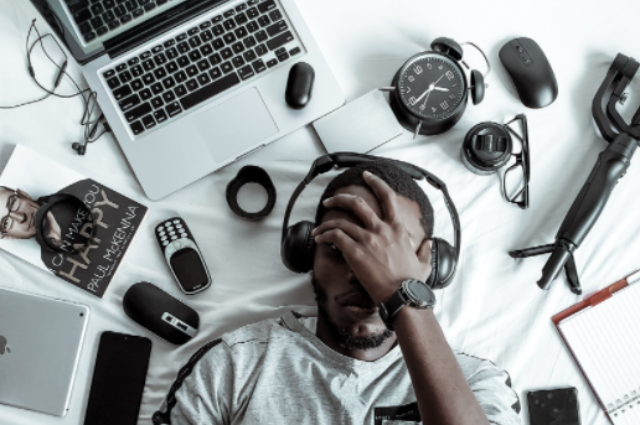
Technology gallops our lives these days. They stay with us from the moment we rouse up until we hit the hay. The unflagging connection seems to be the name of the game. With metamorphic inventions like trailblazing internet paraphernalia, proliferating social media spaces, pre-eminent search engines, and transmogrifying e-commerce markets, big tech companies have revolutionized the way we lead our lives, eventually making them the most powerful monopolies today. They influence the economy and society at a staggering magnitude.
The fact that these tools have created some wonderful things in the world which has changed the course of history seems to have lost its appreciation today. From uniting families to help finding organ donors, the internet has set a new definition for the word “connection”. They have opened the doors of knowledge for everyone. Anyone from any corner of the world can access any amount of information at any time. Anything that the brain can think can be found here! IN LITERAL SENSE!! ANYTHING!! I mean, there were and still are meaningful, systemic changes happening around the world because of these platforms that are positive! But again every single coin has two sides and I think we were naive to not discover or acknowledge the other side of this coin. Millions of people are hopelessly addicted to their electronic devices. The Covid-19 pandemic has also led to an inevitable surge in the use of digital technologies. What makes it worse is the fact that the thing which was invented to connect people is the major reason which allows people to literally isolate themselves now in a bubble.
A new study throws light on the link between mental health and social media use. A question, which actually baffles us, is about whether social media is making us depressed individuals more? Cosmetic procedures are becoming so popular with teens these days, plastic surgeons have coined a new syndrome for it, “Snapchat dysmorphia,” with young patients wanting surgery so they can look more like they do in filtered selfies as filtered selfies make them look perfect! Again Fake news has become more advanced and is threatening societies around the world by spreading hatred amongst communities and people. Recently in India, Internet lynch mobs have killed a dozen people!!

We have these concentrations of economic power in a realm that touches almost every aspect of our existence and the rocketing market share with their data has made them minaciously treacherous. With surveillance capitalism, they have operated as black boxes without meaningful scrutiny or accountability. There is also a greater wariness of the effects of big tech on democracy and democratization. Never before in history have 20- to 35-year-old white guys in California, made decisions that would have an impact on people all over the world. People will have thoughts that they didn’t intend to have because they are being feeded that through their social media handle, ads and what not! There are all these services on the Internet that we are made to believe are free, but the answer is BIG FAT NO! They’re paid for by advertisers. For big techs We’re the product. Our attention is the product being sold to advertisers. So how do they do that? At a lot of technology companies, there are three main goals.
- Engagement goal: to drive up your usage, to keep you scrolling.
- Growth goal: to keep you coming back and inviting as many friends and getting them to invite more friends.
- Advertising goal: to make sure that, as all that is happening, we are making as much money as possible from advertising.
The Social Dilemma is a 2020 American docudrama film that explores the rise of social media and the damage it has caused to society. A true eyeopener. When you look around you, it feels like the world is going crazy. You have to ask yourself, like, “Is this normal? Or have we all fallen under some kind of spell?” Rampant misinformation, sedition, hate speech, and frauds have been the culmination of myth creation by the entertainment industry altogether. The onus is on the viewers to have a broader gamut of tolerance and pragmatism to separate the false from facts and films. Regulatory norms are gaining weight with the burgeoning of digital entertainment platforms. Their implementation and stringency may not be accepted with ease. Some cohorts believe that we are mere products if we are not paying. This indicates that these industries draw legitimacy in pursuing their profit interests at the cost of deceptive creations. Therefore, it is rightly said, “Eternal vigilance is a price of freedom”. They are funneling our vision by leading us to view a world, which fills their pockets. They exploit loopholes in global tax rules to avoid paying as much as $2.8bn tax a year in developing countries where governments are still struggling to provide even basic amenities to their citizens.
With billions of people hyper-connected to each other in an unprecedented global network, it allows for an almost instantaneous and frictionless spread of new ideas and innovations. Combine this connectedness with rapidly changing demographics, shifting values and attitudes, growing political uncertainty, and exponential advances in technology, the picture gets clear that the next decade is setting up to be one of historic transformation. But where do all of these big picture trends intersect, and how can we make sense of a world engulfed in complexity and nuance? Furthermore, how do we set our sails to take advantage of the opportunities presented by this sea of change? What should be our course of action? Questions which I leave you to answer. But as it is appallingly obvious by present circumstances; big techs are not only running, they are ruling the world, regulation of them has become necessary. Strict laws are needed for our safety and privacy. Let us modulate them before they introduce conformism in our culture by pandering to our instincts.
